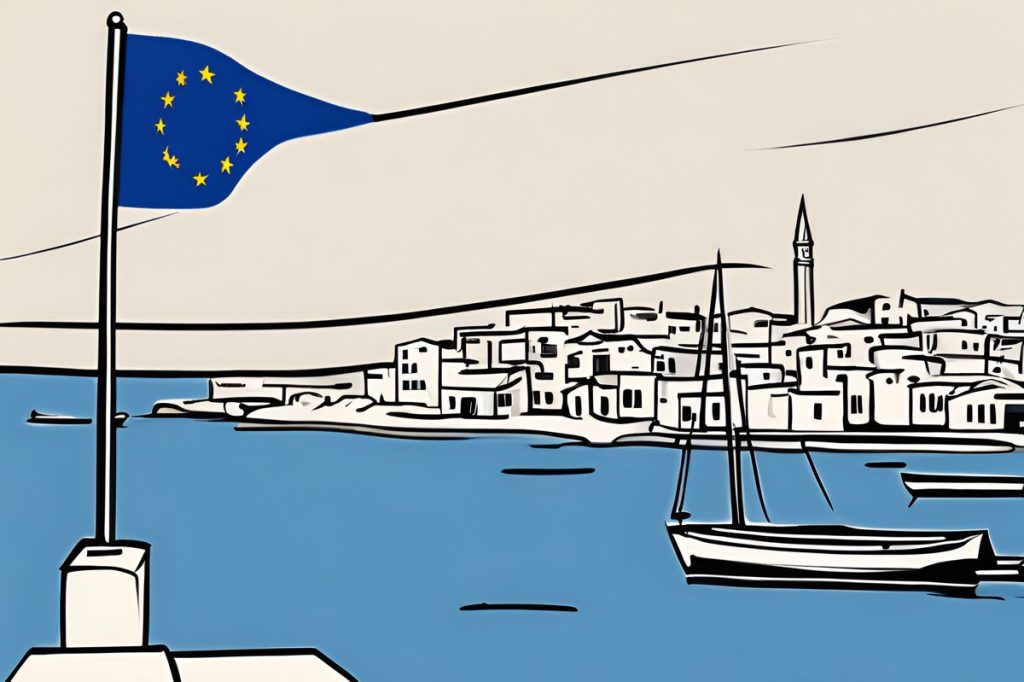The European Union is committed to resolving the Cyprus issue through collaboration and stability in the Eastern Mediterranean. With the support of the UN-led process, the EU aims to strengthen Euro-Turkish relations and promote peace in the region.
What is the European Union’s commitment towards resolving the Cyprus issue?
The European Union is dedicated to a comprehensive settlement of the Cyprus issue, supporting the UN-led process and linking resolution progress with the advancement of Euro-Turkish relations. The EU’s approach emphasizes collaboration, peace, and stability in the Eastern Mediterranean region.
The Brussels Council’s Commitment
The European Union has once again shown its unwavering dedication to resolving the long-standing Cyprus issue. In a recent extraordinary meeting held in Brussels, the European Council expressed its full support for a comprehensive settlement of the Cyprus problem. This commitment adheres to the parameters set by the United Nations and aligns with the relevant resolutions passed by the UN Security Council. Such a resolution is seen as pivotal for stability and peace in the region.
Konstantinos Letymbiotis, the government spokesperson, highlighted the success of the council meeting, which took place in the early hours of Thursday. He emphasized the achievement of one of the government’s key objectives: to reinforce the connection between Euro-Turkish relations and the Cyprus problem. This strategic linkage is vital as it acknowledges the complexities of regional politics and the role Turkey plays in the Eastern Mediterranean.
UN’s Role and EU’s Support
The European Council extended a warm welcome to Maria Angela Holguin, appointed as the UN Secretary-General’s personal envoy for Cyprus. This appointment underscores the international commitment to finding a viable solution for Cyprus. The EU has not only offered its endorsement but is also prepared to assume an active role in supporting the UN-led process. Progress in negotiations is crucial, and the EU’s readiness to contribute positively to these talks signals a collaborative effort towards peace.
Addressing the media, the President of the European Council underscored the importance of resuming Cyprus settlement negotiations and the need for substantial progress. Acknowledging the intricate relations between the EU and Turkey, he conveyed that active and constructive engagement in the Cyprus talks by Turkey would be met with corresponding advancements in their bilateral relations.
Strategic Discussions and Broader Implications
Letymbiotis, speaking on the radio, conveyed the European Council’s strong urging of Turkey to take a constructive approach towards the Cyprus issue. He praised the clarity of the message sent by the EU, emphasizing the significance of paragraphs 9 and 10 from the council’s Conclusions which highlight the substantial emphasis placed on progress in Cyprus.
The strategic discussion of Euro-Turkish relations was referred to the Committee of Permanent Representatives (COREPER), as per Nicosia’s proposals during the Council. This development ensures that all EU member states will contribute their perspectives on the evolution of Euro-Turkish relations.
Economic Support for Lebanon
The announcement of an upcoming visit to Lebanon by President Nikos Christodoulides and President of the European Commission Ursula von der Leyen on May 2nd brings to light another facet of the EU’s Mediterranean strategy. The visit’s primary focus will be to discuss a package of additional economic support for Lebanon. Despite the details of the support package still being under discussion, there is optimism regarding the progress to be achieved prior to the visit. It is anticipated that President von der Leyen will be able to provide the Lebanese leadership with relevant information about the support package, further demonstrating the EU’s commitment to stabilization and development in the region.
The EU’s engagement in the Eastern Mediterranean, whether through its efforts to resolve the Cyprus problem or support neighboring countries such as Lebanon, is a testament to its broader foreign policy objectives. These efforts signal the EU’s readiness to play a constructive role in regional peace and cooperation.
What is the European Union’s commitment towards resolving the Cyprus issue?
The European Union is dedicated to a comprehensive settlement of the Cyprus issue, supporting the UN-led process and linking resolution progress with the advancement of Euro-Turkish relations. The EU’s approach emphasizes collaboration, peace, and stability in the Eastern Mediterranean region.
What was the outcome of the recent extraordinary meeting held by the European Council in Brussels regarding the Cyprus issue?
During the recent extraordinary meeting in Brussels, the European Council expressed full support for a comprehensive settlement of the Cyprus problem. The commitment aligns with UN parameters and resolutions, highlighting the importance of stability and peace in the region. The council emphasized the strategic linkage between Euro-Turkish relations and the Cyprus issue.
How is the United Nations involved in resolving the Cyprus issue, and how is the European Union supporting this process?
The European Council welcomed the appointment of Maria Angela Holguin as the UN Secretary-General’s personal envoy for Cyprus, demonstrating international commitment to finding a viable solution. The EU endorses the UN-led process and is prepared to actively support negotiations. The EU’s readiness to contribute positively to talks reflects a collaborative effort towards peace.
What broader implications and strategic discussions have arisen from the European Council’s commitment to resolving the Cyprus issue?
The European Council has urged Turkey to take a constructive approach towards the Cyprus issue, emphasizing the importance of progress. Strategic discussions on Euro-Turkish relations have been referred to the Committee of Permanent Representatives (COREPER), ensuring input from all EU member states. Additionally, the EU’s engagement in the Eastern Mediterranean extends to supporting countries like Lebanon, showcasing a broader commitment to regional stabilization and development.

